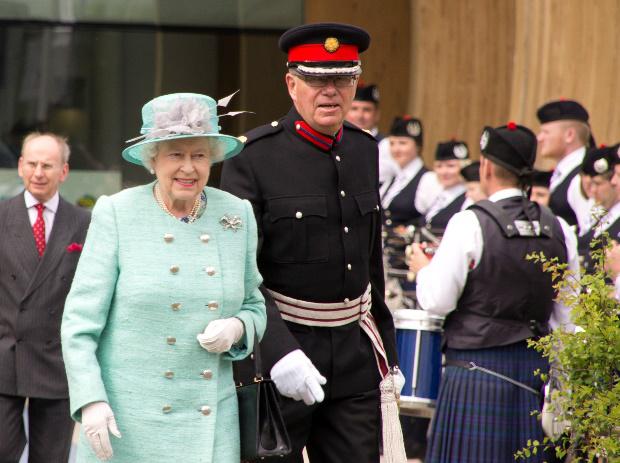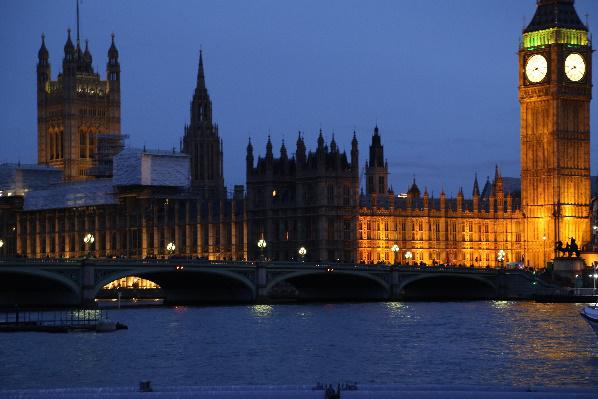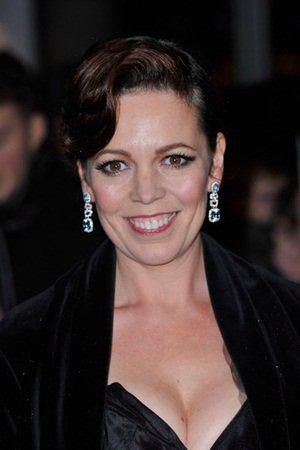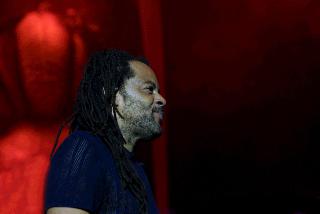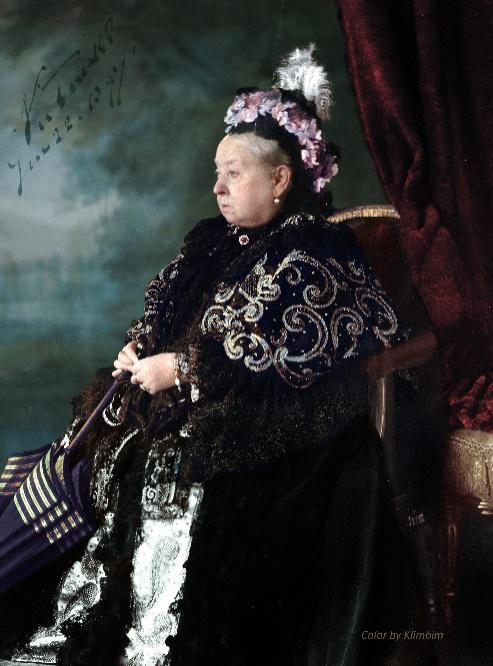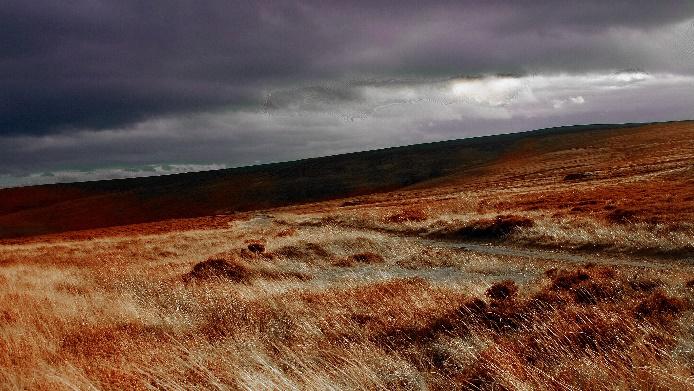The A-Z of Britain
A-Afternoon Tea: We begin with the historic snack of the British upper class: scones served with clotted cream and jam, an assortment of dainty sandwiches and, of course- tea. Its creation is credited to the seventh Duchess of Bedford, who, in 1840, found herself peckish before tea-time and demanded the serving of tea, bread and cake. Of course, the Duchess’ tea can almost certainly be traced to British colonialism in India, putting a necessary dent in the quaint image of ‘high tea’. B-Birmingham: Birmingham is England’s ‘second city’ (second, of course, to London). Birmingham has a lot going for it, despite what the average Brit might say about the accent, which is almost always voted as being the most unpleasant in the country! Despite this, Birmingham is a hub of creativity; producing world-renowned poets like Benjamin Zephaniah, music-icons like Ozzy Osbourne and even brilliant thinkers like Kehinde Andrews. All the while, Birmingham remains one of the most deprived and underprivileged places in the UK. Birmingham is a place of big ups and big downs. C-Cadbury’s: Another export from Birmingham- Cadbury is one of the most recognisable chocolate brands on the planet! Started by devout-Quaker John Cadbury in 1905, his chocolate has been a mainstay of the British palate for over a century. D-Dickens: Charles Dickens is one of the most widely read authors of all time. To this day, schoolchildren perform Oliver Twist, A Christmas Carol is on British TV every yuletide, and professors continue to ponder the marvellous mysteries of masterpieces like The Tale of Two Cities and Hard Times. Dickens’ writing rose like chimney smoke from a smog-coated industrial Britain, documenting its poverty and production. E-Eton: Eton is the epitome of ‘posh.’ Eton is the place where people speak like Americans think all British people speak. It’s a private school which was founded in 1440, has produced twenty British prime ministers, and costs roughly £40,000 a year to attend. While budget cuts to state comprehensives have forced teachers and parents to empty their own pockets to fund schools- Eton is the ever-present reminder that the best education is reserved for a set few. F-Football: Football streams out of Britain’s every pore. In 2018, England reached the semi-finals of the men’s World Cup and the country sizzled with nervousness and was achingly deflated when they lost 2-1 to Croatia. Football has always been important to the construction of British communities. Some of the biggest football teams in the world, like Manchester United and Arsenal, originated from trade unions. G-Grime: Grime music has a complex relationship with British culture. On one hand, grime is one of Britain’s most popular cultural exports; MC’s like Stormzy and Skepta are, arguably, two of Britain’s most globally recognised artists of the 21st Century. On the other hand, grime has forever existed outside of mainstream society. As London rapper JME ‘spits’ on his iconic track Man Don’t Care: ‘the music originated and will always remain in the streets.’ Grime was founded, and, since it largely remains independent of enormous record labels, has been maintained (mostly) by black working-class British voices. The consequence of this is that, in spite of symbolic entrances into popular culture, like Stormzy’s Pyramid Stage appearance at Glastonbury 2019, grime remains a distinctly anti-establishment counter-culture. As Akala rapped: ‘we speak for the people properly, not for the old fat guys in offices.’ H-Heinz Shockingly, Heinz is not a British company. It was, in fact, founded by German immigrants in Pennsylvania. However, despite its Germanic-American heritage, Heinz has perhaps created the fundamental British dish: beans on toast. I-Ipswich: In every country on planet Earth, there live those little towns which are overshadowed by the giant, exciting cities. Ipswich is very much one of those towns. So, let’s give the UK’s 3rd happiest place to live (at least in 2015) some well-earned respect and attention! Ipswich is encircled by the Suffolk Coast and Heaths, as well as Dedham Vale. These are two ‘Areas of Outstanding National Beauty’, or- spaces of land conserved to protect their natural beauty. Ipswich also (loudly) boasts being the hometown of death metal band Extreme Noise Terror! J-J.R.R Tolkien: John Ronald Reuel Tolkien is most famous for writing The Lord Of The Rings. Tolkien’s trilogy is often thought of being a simple ‘good vs evil’ fantasy tale about elves, dwarves and dragons, but it was actually written in response to the changes Tolkien was seeing in early twentieth- century Britain. British society was becoming increasingly ‘modern’; factories replaced fields, industry replaced agriculture and green landscapes were felt to be at risk. The orcs of Middle Earth represent the forces of modern Britain, industrially pillaging the natural world Tolkien had fallen in love with. K-Kingdom Whilst the Queen doesn’t possess much actual power, Britain is still a ‘United Kingdom’. Over two-thirds of Britons still support the monarchy and tabloids regularly obsess over the royal’s private lives; clearly the concept of ‘Kingdom’ is still important in contemporary Britain. L-London It would be hard to mention Britain without mentioning London. One of the globe’s financial, political and historical hubs- visiting the capital feels like walking beneath the world’s enormous spotlight. M-Maypole Dancing Whilst maypole dancing now reminds us of slightly eccentric, middle-class ‘hippie’ types, it was once an established British custom. Maypole dancing is essentially waltzing around an enormous wooden pole, or ‘maypole’, with music and ribbons! The merriment of the maypole saw its decline through Oliver Crowell’s Puritanical reign, where the maypole was accused of being a heathenish extravagance which distracted God’s children from leading a pious life! N-NHS (National Health Service) When Britain’s public health system was launched in 1948, its architect Nye Bevan stated that its three core principles were: ‘that it meets the needs of everyone, that it be free at the point of delivery, and that it be based on clinical need, not ability to pay.’ Despite remaining the fifth largest employer in the world, the NHS has been put under considerable duress by the crippling budget cuts of successive Conservative governments in the ‘austerity’ era which followed the world economic crash of 2008. O-Olivia Coleman Olivia Coleman’s career has rocketed from British cult classics like Hot Fuzz and Peep Show, to globally popular, award-winning shows like The Crown. Through her superb thespian abilities, as well as her witty though humble disposition, as evidenced in her Golden Globes acceptance speech in January, Coleman has ensnared an international audience. P-Pankhurst The name Pankhurst refers to a lineage of women’s rebellion. Emelline Pankhurst was a founding member of the Suffragettes, and helped women attain the vote. Whilst Emelline Pankhurst focused on giving women a place on the ballot, her daughter Sylvia began addressing the hordes of women living in East London’s slums, setting up cheap restaurants, a free medical clinic and a nursey. The split that emerged in the Suffragette movement was contrived in the political differences between mother and daughter: Emelline wanted to change the electoral system, whilst Sylvia wanted to transform the system entirely. Q-Queuing It’s something of a cultural cliché to say that Britons love to queue. The idea stems from Hollywood’s image of the British possessing a bumbling, overpolite and slightly awkward character, where a dedication to queuing provides a form of order in their disordered lives. As social distancing has cemented itself into everyday life, queues in Britain are getting longer than ever. R-Rain Bad weather may as well be a British institution. Rain puts off professional footballers from playing in the UK. Rain cancels plans, washing away day trips to the coast, family picnics and generally going outside. It feels like the average Briton’s schedule is moulded around the weather forecast. S-Swansea Swansea, Wales’ second city, has an ancient history dating back to the Palaeolithic era. In fact, academics have speculated that it might be the first area to be populated by modern humans in Britain. In less ancient times, Swansea became the nucleus of the copper industry and produced the renowned poet Dylan Thomas (almost every pub in Swansea claims that Thomas was one of their customers!) T-To the Lighthouse Perhaps To the Lighthouseearns its place on this list because it’s a rich, intricate and beautifully written British novel. But, more than that, Virginia Woolf’s novel represented a revolutionising in the way a book should be written. The Victorian tradition of storytelling involved objective 3rd person narrators recounting accurately, and in order, the actions of characters its characters. To the Lighthouse, however, stutters confusingly through the minds of its many characters, championing a narrative technique called ‘stream of consciousness’, where stories are told through the fast-paced interior of the everyday human mind. U-UB40 Yet another creative product of Birmingham, UB40 is one of the most commercially successful reggae bands in the world. Formed in 1978, UB40’s success is a testament to the profound Jamaican influence in Birmingham. Most Jamaicans arrived in the UK after the end of World War Two, during the ‘Windrush’ generation, where the citizens of British colonies were invited to the ‘motherland’ to rebuild a crippled post-war economy. Faced with poverty and racism, UB40 is one of a million examples of how Jamaican diaspora have shaped British art in the face of hardship. Victorian The Victorian era refers to the time of Queen Victoria’s reign (1837-1901). However, it represents a profound change in British life. The explosion in manufacturing that accompanied the Industrial Revolution meant that swathes of British people moved from countryside to city and farm to factory. The impact on people’s lives was striking. Victorian-era writers like Dickens underlined the enormous poverty, hunger and danger that stalked the life of the urban working-class. Factories were unsafe and wages were pitiful. By the end of Queen Victoria’s reign, the quiet greenery of rural Britain had been dusted with the soot of its money-making chimneys. W- Wales Wales, while always flaunting the gaunt elegance of its mountainous landscape and sculptured coastlines, is enjoying a particularly exciting moment in its history. Wales ‘devolved’ from British government in 1997, meaning a new ‘National Assembly’ has the power to make national decisions independently from Westminster. A key cause for the increased desire for independence was the miner’s strike of 1984-85. Margaret Thatcher’s decision to push mass closures of coal mines was particularly damaging in Wales, forcing many communities into unemployment and poverty. A consequence of this was an increased national unity and identity of ‘Welshness’. X- The X-Factor Beginning in 2004 on the lowly circuit of British TV, the X-Factor quickly took over the globe, with over fifty countries producing their own versions of the show. Each year, the show pitted musicians against each other in the bid to win a record deal; the winner (almost) always went on to secure Christmas number one in the UK charts, except for in 2009, when winner Joe McEldberry was beaten controversially by Rage Against The Machine’s anthemic ‘Killing in the Name’, who had claimed to topple the ‘X-Factor monopoly’. Y- Yorkshire Yorkshire pudding. Yorkshire tea. Yorkshire moors. This trio makes Yorkshire an important British place. Not to mention the fact that the Yorkshire moors served as the haunting setting of a British literary triumph: Emily Bronte’s Wuthering Heights. Z- Zadie Smith ‘Multi-talented’ is the 1st phrase that ought to enter our heads when we think of Zadie Smith. As a child she took up dancing and considered a career in musical theatre; at university, she worked as a jazz singer, all before deciding to become one of Britain’s principal literary talents.









